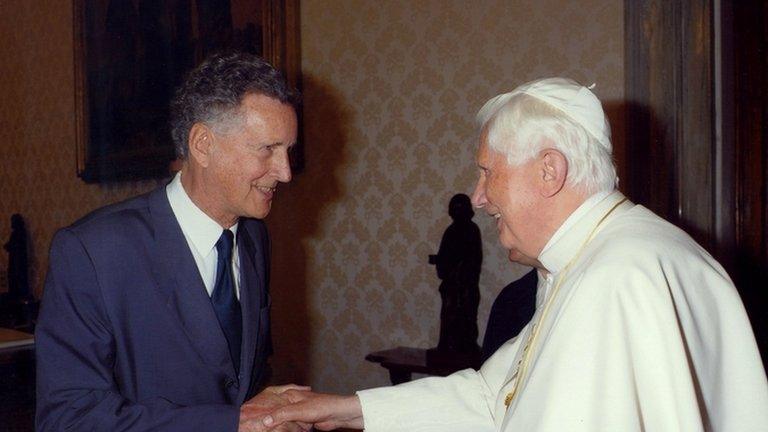Pope Francis sharply criticises Vatican bureaucracy
- Published
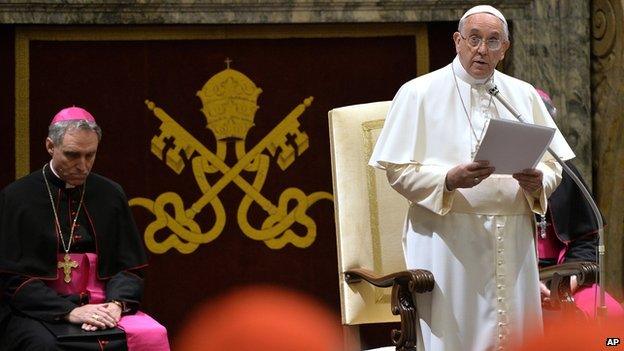
The Pope delivered his tough message in the Vatican's Clementine Hall
Pope Francis has sharply criticised the Vatican bureaucracy in a pre-Christmas address to cardinals, complaining of "spiritual Alzheimer's" and "the terrorism of gossip".
He said the Curia - the administrative pinnacle of the Roman Catholic Church - was suffering from 15 "ailments", which he wanted cured in the New Year.
Pope Francis - the first Latin American pontiff - also criticised "those who look obsessively at their own image".
He has demanded reform of the Curia.
Bigger say
Addressing the Curia on Monday, Pope Francis said some power-hungry clerics were guilty of "cold-bloodedly killing the reputation of their own colleagues and brothers".
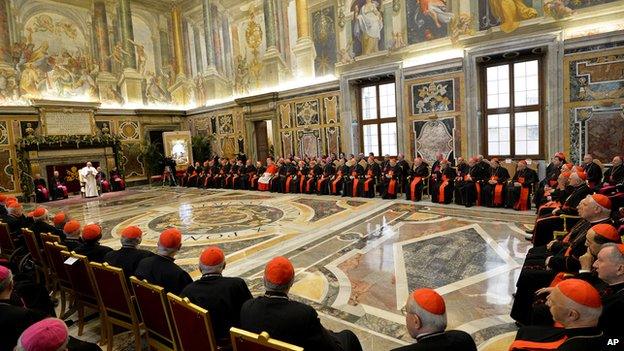
The Pope says the Church elite must reach out to poor and vulnerable worshippers
He compared the performance of the church's civil servants to that of an orchestra playing "out of tune" because they fail to collaborate and have no team spirit.

Analysis: BBC's David Willey in Rome
Clearly Pope Francis is meeting opposition among the nearly 3,000 strong staff of the Italian-dominated Curia.
He had never worked in Rome before his election as pope last year, and - as a Vatican outsider from the other end of the world - is clearly frustrated by the slow-moving and creaking Vatican bureaucracy.
He is trying to reform it with the help of a new group of cardinal advisers he has called in from every continent to draw up a new Vatican constitution.

Before his election in March 2013, the pontiff encountered internal opposition to some of the reforms he wants to carry out.
He has set up a series of specialist bodies to fight corruption and poor management, appointing a team of advisers.
The Pope also launched a clean-up of the Vatican Bank, officially known as the Institute for the Works of Religion (IOR). The IOR has long had a poor reputation, after a succession of scandals.

Some of Curia's 15 'ailments':
Spiritual Alzheimer's
Feeling immortal or immune
Suffering from existential schizophrenia
Committing terrorism of gossip
Becoming spiritually and mentally hardened

Pope Francis has also suggested that the Curia's power - concentrated in Rome for centuries - could be diluted to some extent by giving Catholic bishops around the world a bigger say in Church doctrine.
The pontiff himself did not work in the Curia before he was elected.
Correction: An earlier version of this story incorrectly stated that there was silence at the end of the Pope's speech.
- Published3 October 2014
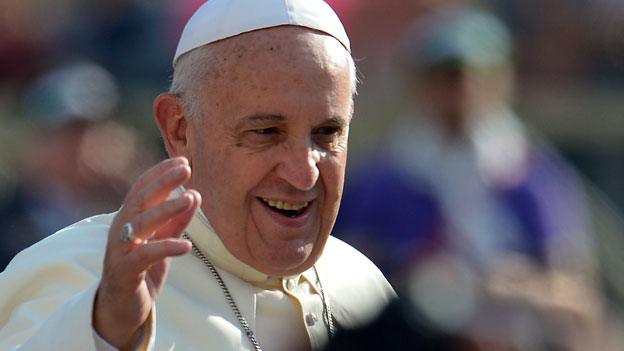
- Published7 January 2014
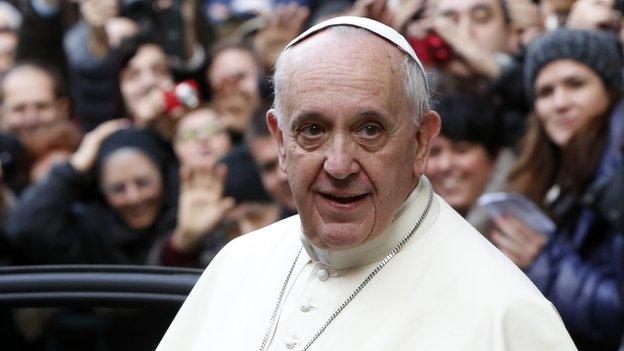
- Published28 October 2022
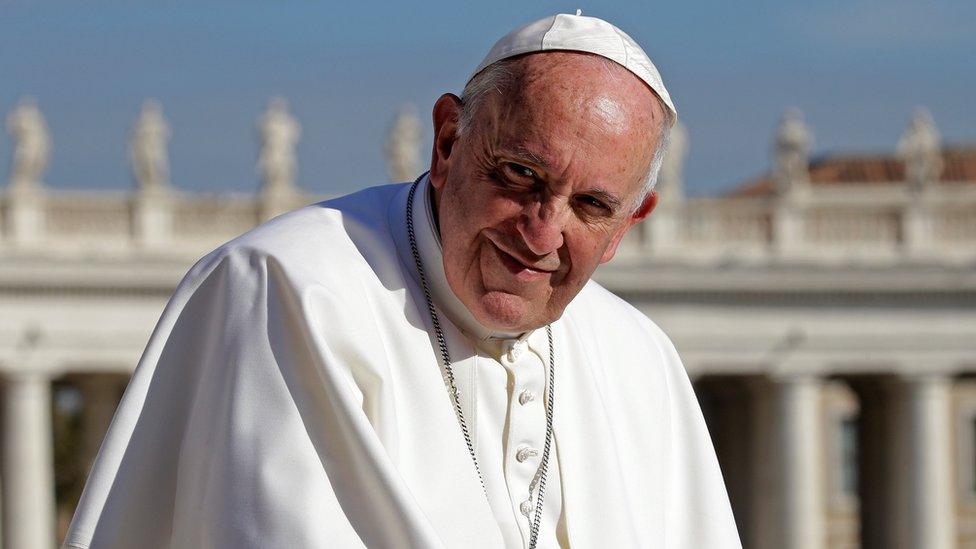
- Published3 December 2014
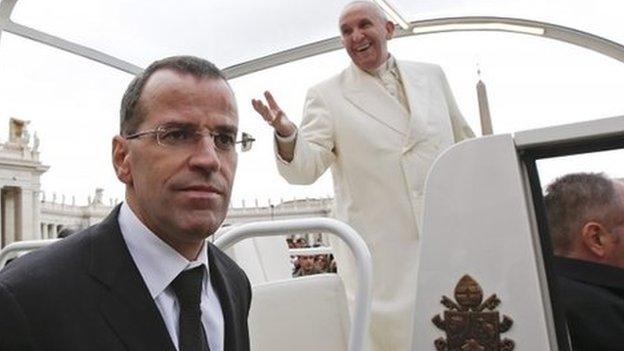
- Published18 July 2013
